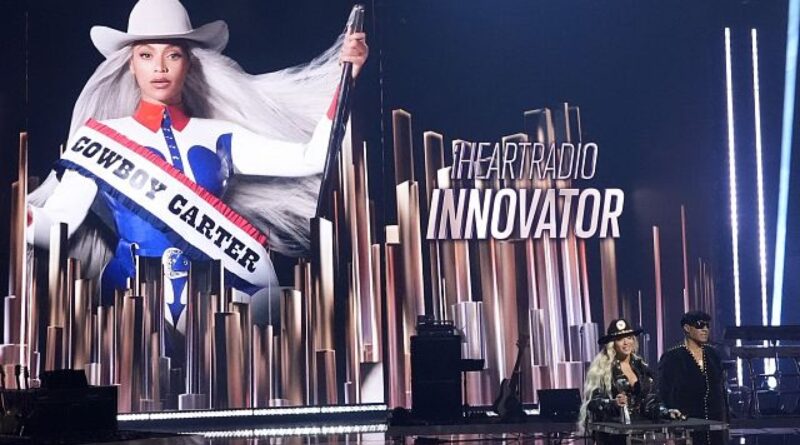Beyoncé’s ‘Cowboy Carter’ shines light on Black artists in country music
The success of Beyoncé’s latest project, Cowboy Carter has shone spotlight on Black country artists.
Rising artist Shaboozey believes the award-winning singer is opening up a much-needed conversation.
“I think it’s awesome. I mean, the fact that Beyoncé has been able to create this, you know, conversation for more people to be included in this space and talked about, it’s just – it’s been really cool.”
“Beyoncé is a role model of mine and just an idol. So, to see her just kind of coming in here (country music) has been, has been honestly beneficial to me and the plenty of other artists that are also in this space.”
Virginia-born of Nigerian descent Shaboozey is featured in Beyoncé’s 27-track release.
The 28 year-old unveiled his debut album ‘Lady Wrangler’ in 2018.
He shared how he came to singing country western hip-hop.
“I think just growing up, I just had no, there were no – there was no wall, there were no walls. Being from Virginia, there was really nothing to compare to. I’ve always been on my own just experimenting and I think that’s what I continue to just bring to music is.”
Just like Shaboozey, Reyna Roberts worked with Beyoncé on her Act II album.
She provided background vocals on tracks “Blackbiird” and “Tyrant”.
She says Queen B, as fans call, her is a source of inspiration.
In February, Beyoncé became the first Black woman to top the Billboard country music chart.
“I think it’s fantastic,” Roberts says.
“I’m the biggest Beyoncé fan. She’s inspired my whole career. Obviously, there’s other artists that have inspired me as well, but she has always been this staple and the epitome of like excellence.”
Beyoncé’s steamrolling into country music – and her motivation behind it — has reignited discussions about the genre’s origins and diversity.
But is Nashville prepared and willing to make space for difference?
Reyna Roberts recalled her first time in the capital of country music: “Before I came to – before I went to Nashville, which is like, I think maybe like five years ago or so, I didn’t know any Black artists in country music.”
“But my mindset was even though I don’t see representation, I will make sure that there’s representation. I will make sure that people will see me, and they will know that they have a space here.”
If the former Destiny’s Child singer has blessed her public with a reimagined take on Dolly Parton’s legendary Jolene, her album “ain’t a Country” one but “a ‘Beyoncé’ album” — positioning herself in opposition to country music’s power structures and emphasizing her ability to work with the style with her latest genre-defying opus.

